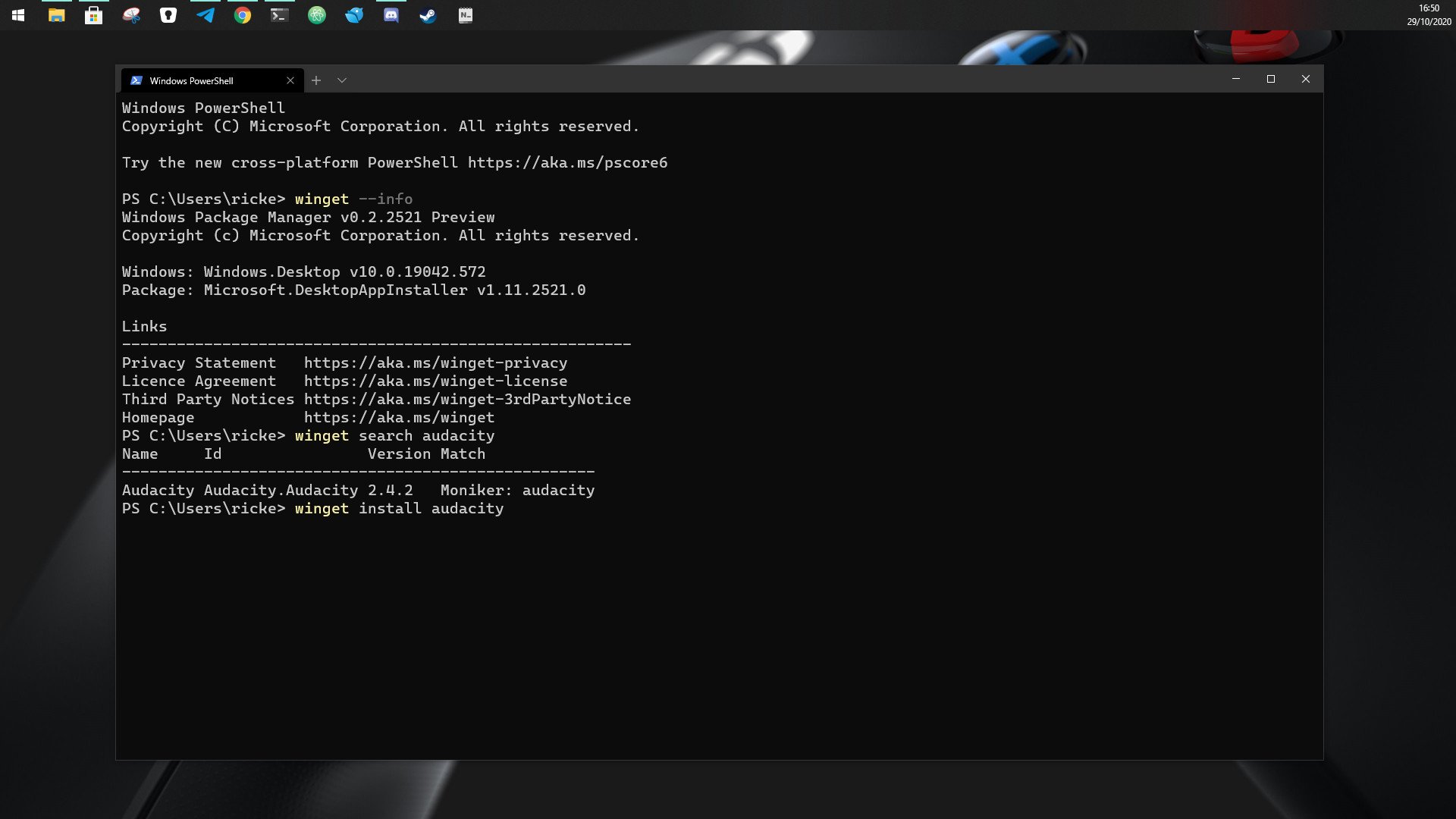Windows Package Manager updated to version 1.3 — here's how to (win)get it
The latest version of Windows Package Manager supports portable packages and has a host of other improvements.

All the latest news, reviews, and guides for Windows and Xbox diehards.
You are now subscribed
Your newsletter sign-up was successful
What you need to know
- Windows Package Manager has been updated to version 1.3.
- The update adds support for portable packages, which are apps that don't require an installer.
- Windows Package Manager will show a system's architecture to help determine why a program may not be acting as expected.
- The update also provides options for viewing installation notes, documentation, and logs.
Microsoft just shipped an update for Windows Package Manager. The update brings the tool to version 1.3, and it includes several new options that make it easier to manage applications on systems. Windows Package Manager 1.3 also supports portable packages, which are apps that don't require an installer.
Windows Package Manager, also known as winget, is a command line tool that can be used to install, uninstall, and manage applications on Windows 11 and Windows 10. It was first released in May 2021 after a year of preview testing. It has since received several updates, though it's been a few months since version 1.2 rolled out.
The changelog for Windows Package Manager version 1.3 is quite extensive. Here are the highlights:
- Support for installation of portable/standalone apps #182
- Add a notes/info field to manifests. #607
- Add an optional URL to Expected Return Codes #1889
- Manifest Field for User Manual / Documentation #1984
- Add alternative version number field to manifest to make correlation with entries in
- Add/Remove programs more reliable #980
- Setting for always using verbose logs #1940
- winget --info should print the system architecture #1925
- An even better progress bar #2055
You can read more about the latest update in a dev blog post by Demitrius Nelon, the Microsoft program manager working on Windows Package Manager.
Portable packages, also known as portable apps, are programs that don't require an installer. These types of app packages can now be managed by Windows Package Manager. They will appear as installed applications and can also be uninstalled through the utility.
Microsoft.NuGet has been added to the Windows Package Manager Community Repository already. Submissions for other portable packages will start being accepted in about a week.
Windows Package Manager is available through GitHub.
All the latest news, reviews, and guides for Windows and Xbox diehards.

Sean Endicott is a news writer and apps editor for Windows Central with 11+ years of experience. A Nottingham Trent journalism graduate, Sean has covered the industry’s arc from the Lumia era to the launch of Windows 11 and generative AI. Having started at Thrifter, he uses his expertise in price tracking to help readers find genuine hardware value.
Beyond tech news, Sean is a UK sports media pioneer. In 2017, he became one of the first to stream via smartphone and is an expert in AP Capture systems. A tech-forward coach, he was named 2024 BAFA Youth Coach of the Year. He is focused on using technology—from AI to Clipchamp—to gain a practical edge.
